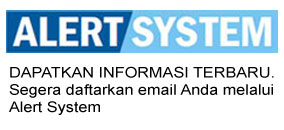Last updated on: August 24, 2012 8:32 PM
DOUALA, Cameroon — A few years ago nuclear medicine was too expensive for both hospitals and patients in Africa.
Today, that’s changing. Countries across the continent are racing to develop, promote and control the use of radiation-emitting substances in the detection and treatment of disease.
Angola is fleshing out plans to set up a nuclear medicine center as the number of cancer patients continues to grow. Sudan, Ghana and Cameroon already have such centers.
South Africa is a leader in the field, thanks to research conducted by its Nuclear Energy Corporation. It’s currently adapting apartheid-era nuclear technology, created for weaponry, to be used for medical purposes, such as imaging applications which look into the human body.
But experts warn there are still risks to be considered.
Professor Sietske Rubow, a nuclear medicine specialist at the University of Stellenbosch in South Africa, said nuclear medicine comes with its own set of problems, including possible damage to the skin and eyes and long-term harm to the environment.
“It’s lovely that we now have radiopharmacy and nuclear medicine in Africa, ” she said. “But we must make sure that the people who handle the radioactivity are not exposed and patients must get exactly the right dose. Products and radiopharmaceuticals that we work with must meet all the requirements for medicine. So we have special containers and special areas in which we work. We must be very careful.”
Professor Rubow issued the warning at a radiopharmacy conference in the Cameroonian capital, Yaoundé, in July. It brought together experts in nuclear medicine and radiopharmacology from 30 African countries affiliated with the International Atomic Energy Agency, IAEA, the global nuclear energy watchdog. The IAEA has been supporting the expansion of medical technologies on the continent.
The talks covered practical ways of reducing the risks of nuclear medicine in hospitals and the environment. Participant also discussed the appropriate design and upgrading of facilities.
The number of nuclear medicine institutes in Africa is a tiny fraction of those in the U.S., which amounts to about 15 for every million people.
But the IAEA warns that institutions dealing with nuclear medicine often lack sufficient safety regulations and qualified experts and support staff.
As a result, it says it promotes the safe and effective use of radiation therapy by helping to provide machines for hospital use and professional training and guidance on how to control radioactive materials.
Rene Kamgeng, an official with the National Agency for Radio-Protection in Cameroon, said although the challenges are huge, African countries are determined to address them.
“The stakes,” he said, “are about seeking ways to reinforce capacities with regards to radiopharmaceutical products containing radioactive substances: how to prepare them, how to ensure compliance with quality standards, how to ensure protection, how to manage the products and to ensure mastery of the techniques of usage.”
The first African conference on nuclear medicine was held in Sudan in 2008. It urged African governments to support nuclear medicine as a basic part of national programs to fight cancer, cardiac diseases and other metabolic disorders. Since then the IAEA has been sponsoring workshops to strengthen safeguards across the continent.
Sumber: VOA









[…] A few years ago nuclear medicine was too expensive for both hospitals and patients in Africa. Angola is fleshing out plans to set up a nuclear medicine center as the number of cancer patients continues to grow. Sudan, Ghana and Cameroon already have such centers. Selengkapnya […]